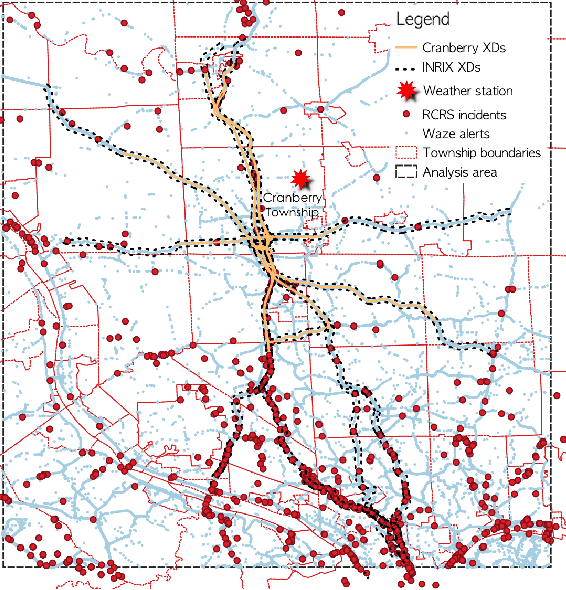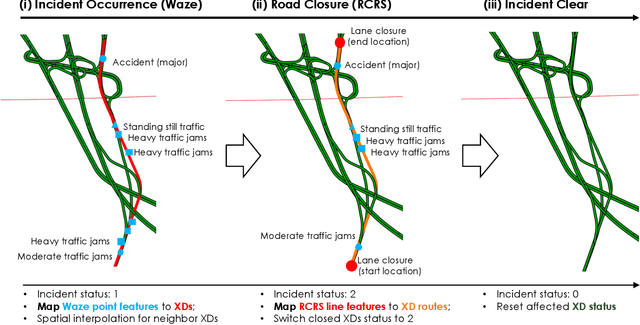Learning to Recommend Signal Plans under Incidents with Real-Time Traffic Prediction
Paper and Code
May 21, 2020



The main question to address in this paper is to recommend optimal signal timing plans in real time under incidents by incorporating domain knowledge developed with the traffic signal timing plans tuned for possible incidents, and learning from historical data of both traffic and implemented signals timing. The effectiveness of traffic incident management is often limited by the late response time and excessive workload of traffic operators. This paper proposes a novel decision-making framework that learns from both data and domain knowledge to real-time recommend contingency signal plans that accommodate non-recurrent traffic, with the outputs from real-time traffic prediction at least 30 minutes in advance. Specifically, considering the rare occurrences of engagement of contingency signal plans for incidents, we propose to decompose the end-to-end recommendation task into two hierarchical models: real-time traffic prediction and plan association. We learn the connections between the two models through metric learning, which reinforces partial-order preferences observed from historical signal engagement records. We demonstrate the effectiveness of our approach by testing this framework on the traffic network in Cranberry Township in 2019. Results show that our recommendation system has a precision score of 96.75% and recall of 87.5% on the testing plan, and make recommendation of an average of 22.5 minutes lead time ahead of Waze alerts. The results suggest that our framework is capable of giving traffic operators a significant time window to access the conditions and respond appropriately.
 Add to Chrome
Add to Chrome Add to Firefox
Add to Firefox Add to Edge
Add to Edge